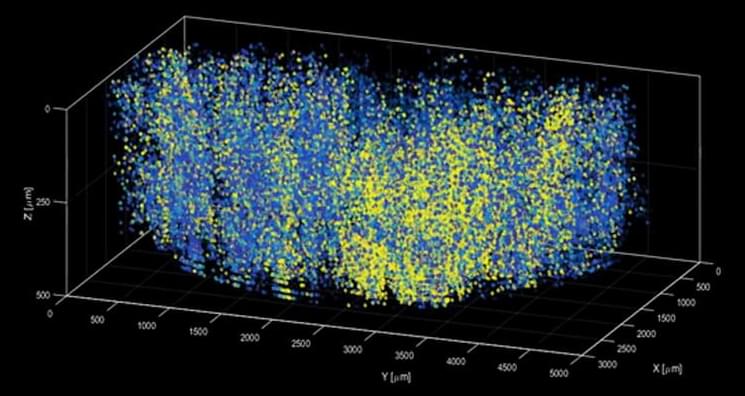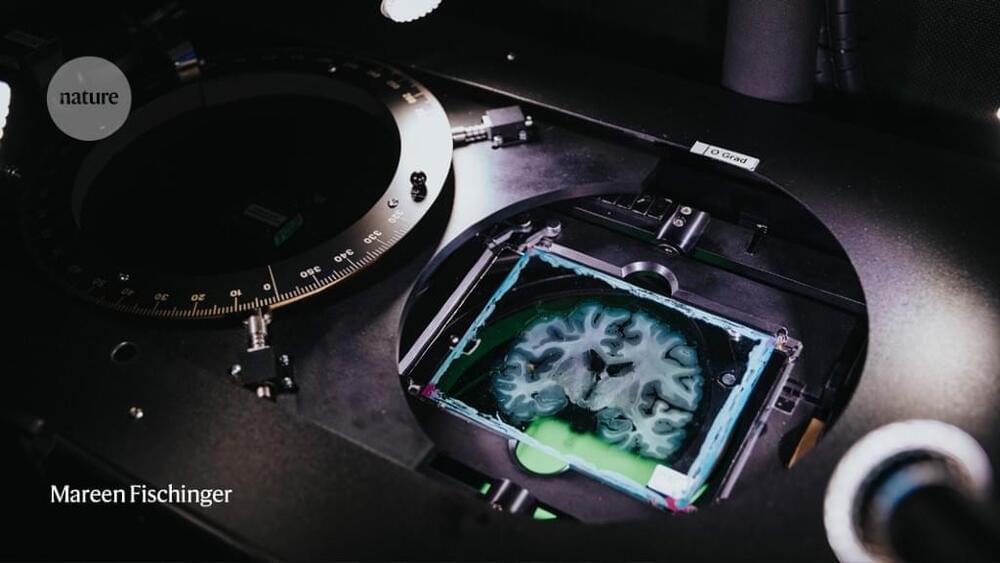Intel has introduced Loihi 2 its second-generation neuromorphic research chip, featuring eight times the computational neurons compared to the earlier Loihi 1.


It probably didn’t feel like much, but that simple kind of motion required the concerted effort of millions of different neurons in several regions of your brain, followed by signals sent at 200 mph from your brain to your spinal cord and then to the muscles that contracted to move your arm.
At the cellular level, that quick motion is a highly complicated process and, like most things that involve the human brain, scientists don’t fully understand how it all comes together.
Now, for the first time, the neurons and other cells involved in a region of the human, mouse and monkey brains that controls movement have been mapped in exquisite detail. Its creators, a large consortium of neuroscientists brought together by the National Institutes of Health’s Brain Research Through Advancing Innovative Neurotechnologies® (BRAIN) Initiative, say this brain atlas will pave the way for mapping the entire mammalian brain as well as better understanding mysterious brain diseases — including those that attack the neurons that control movement, like amyotrophic lateral sclerosis, or ALS.

A new method – which has been dubbed “light beads microscopy” – is described in the journal Nature. This offers a creative solution that pushes the limits of imaging speed and is limited only by the physical nature of fluorescence itself. It eliminates the “deadtime” between sequential laser pulses when no neuroactivity is recorded and at the same time the need for scanning.
The technique breaks one strong pulse into 30 smaller sub-pulses, each at a different strength, which dive into 30 different depths of scattering but induce the same amount of fluorescence at each depth. This is accomplished with a cavity of mirrors that staggers the firing of each pulse in time and ensures that they can all reach their target depths via a single microscope focusing lens. Using this approach, the only limit to the rate at which samples can be recorded is the time it takes the fluorescent tags to flare. That means broad swathes of the brain can be recorded within the same time it would take a conventional two-photon microscope to capture a much smaller network of brain cells.
Scientists at Rockefeller University, New York, integrated their new system into a microscopy platform with access to a large brain volume. This enabled the recording of activity in more than a million neurons across the entire cortex of a mouse brain for the first time.
With almost instant improvement.
A team of researchers from the University of California, San Francisco Health has successfully treated a patient with severe depression by targeting the specific brain circuit involved in depressive brain patterns and resetting them thanks to a new proof-of-concept intervention.
Even though it centers around one patient, the groundbreaking study, which has now been published in Nature Medicine, is an important step toward bringing neuroscience advances and the treatment of psychiatric disorders, potentially helping millions of people who suffer from depression.


The largest projects started in 2,013 when the US government and the European Commission launched ‘moonshot’ efforts to provide services to researchers that will help to crack the mammalian brain’s code. They each poured vast resources into large-scale systematic programmes with different goals. The US effort — which is estimated to cost US$6.6 billion up until 2027 — has focused on developing and applying new mapping technologies in its BRAIN (Brain Research through Advancing Innovative Neurotechnologies) Initiative (see ‘Big brain budgets’). The European Commission and its partner organizations have spent €607 million ($703 million) on the Human Brain Project (HBP), which is aimed mainly at creating simulations of the brain’s circuitry and using those models as a platform for experiments.
Scientists around the world are working together to catalogue and map cells in the brain. What have these huge projects revealed about how it works?



“Our study is the first to discover that stimulation of the FFAR2 sensing mechanism by these microbial metabolites (SCFAs) can be beneficial in protecting brain cells against toxic accumulation of the amyloid-beta (Aβ) protein associated with Alzheimer’s disease,” said principal investigator Hariom Yadav, PhD, professor of neurosurgery and brain repair at the USF Health Morsani College of Medicine, where he directs the USF Center for Microbiome Research.
Fenchol, a natural compound abundant in some plants including basil, can help protect the brain against Alzheimer’s disease pathology, a preclinical study led by University of South Florida Health (USF Health) researchers suggests.
The new study published Oct. 5 in the Frontiers in Aging Neuroscience, discovered a sensing mechanism associated with the gut microbiome that explains how fenchol reduces neurotoxicity in the Alzheimer’s brain.
